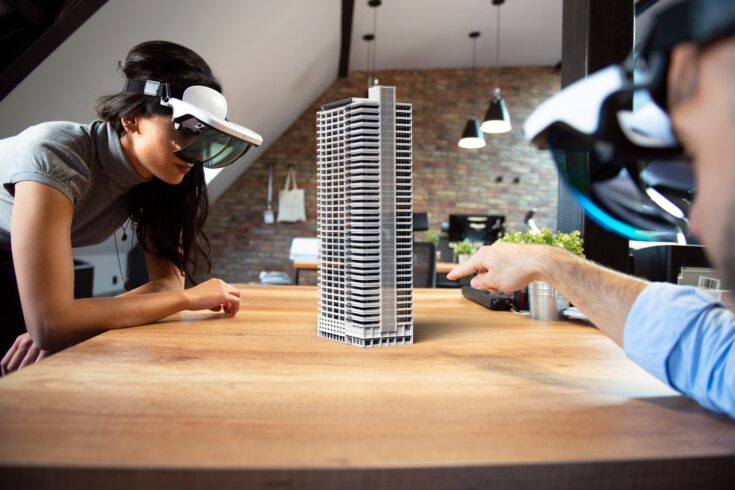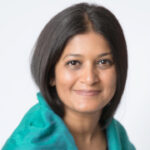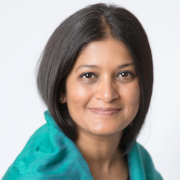As we return to a ‘new normal’ post-pandemic, the AHRC Council is actively considering its effectiveness in the way that it fulfils its advisory and oversight function.
In the past year, we have initiated and implemented several new initiatives to sharpen the focus of our approach, with a renewed emphasis on impact and leadership. As part of our commitment to transparency, I am pleased to share here some of the issues and discussions from our quarterly council meetings.
At the AHRC Council meeting in March, we welcomed new colleagues, Dr Jaideep Gupte, Director of Strategy, Research and Innovation, and Dr Allan Sudlow, Director of Partnerships and Engagement.
From discovery research to supporting the cultural sector
We discussed allocations to councils from the spending review. As AHRC continues to develop both operational and strategic plans, it is worth noting that the majority of our budget continues to be spent on discovery research. This will continue to be the case in future.
We discussed concerns from universities and other research institutions that finding match-funding for postgraduate research and collaborative PhDs is getting harder to achieve. It was also noted that there are considerable variations in support for different subject areas.
There are also gaps between philanthropic or private support and AHRC funding, which merits further consideration in terms of our portfolio of grants.
We also discussed the importance of continuing to support:
- galleries
- libraries
- archives
- museums.
We explored ways that we can help underpin future strategic infrastructure investments, providing researchers in our community with advanced equipment, facilities and technology.
Focusing on the vision
At each council meeting, we focus on one of the four key objectives of AHRC’s vision. Each session takes the form of a deep dive, looking at one of:
- current and planned investments
- examples of current and planned initiatives
- partnerships
- ongoing programmes.
As part of this we assess the progress being made towards achieving this objective.
Conserving and curating our cultural infrastructure for the future is one of the four key objectives outlined in AHRC’s vision. We want to ensure that the breadth and richness of our cultural assets, objects, histories and ideas are readily accessible, underpin world class research and benefit the public in a variety of ways.
At our meeting, in addition to our discussion on cultural assets led by Kristine Zaidi, council received a fascinating presentation from Professor Helen Chatterjee on a national research programme.
This series of 12 projects mobilise cultural, natural and community assets, including:
- artists
- arts organisations
- libraries
- parks
- coastlines
- gyms
- sports
- exercise related assets.
With the aim to combat health inequalities and create healthier communities across the whole of the UK.
The council agreed that this project was a great example of cross-council collaboration and exactly the right approach to demonstrate how the arts and humanities can add huge value to complex contemporary challenges facing society.
AHRC’s investment in innovation
The council also received a paper on AHRC funded investments aimed at:
- innovation
- knowledge exchange
- commercialisation.
Expanding and developing investment in innovation is an important priority for AHRC. Supported by the council, AHRC has made a public commitment to dedicate 10% of its budget to innovation.
These investments range from the ambitious innovation-focussed collaboration in design, Future Observatory: Designing Net Zero, to supporting research in performing and creative arts (for example dance research and sustainable fashion). Other investments enable the development of skills and capacity building relevant to industry (for example TV PhDs and innovation scholarships in architecture).
The Creative Industries Clusters programme has facilitated a diverse mix of creative businesses, including:
- fashion
- films
- virtual reality
- video games.
It has achieved over £200 million of public and private co-investment against an initial investment of £58 million, while also creating 472 new products and experiences, and funding over 900 partnerships.

Credit: gremlin, E+ via Getty Images
In our final session, the council was delighted to welcome Indro Mukerjee, CEO of Innovate UK for a presentation on Innovate UK’s strategic themes and priorities. We had a constructive discussion on how AHRC and Innovate UK could work together on key areas such as:
- digital and service economy
- design and net zero
- the Creative Industries Clusters programme.
The conversation about how a coordinated approach between the two councils could further strengthen the bridge between universities and business in support of innovation was particularly helpful.
We said goodbye to some of our members
This was the last meeting for council members, Professor Chris Wickham and Professor Hagan Bayley. It was also the final council meeting for Professor Edward Harcourt, Director of Research, Strategy and Innovation. We are very grateful to each of them for their work and commitment to AHRC and its council and committees.
Top image: Credit: Georgijevic, E+ via Getty Images




